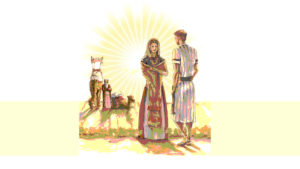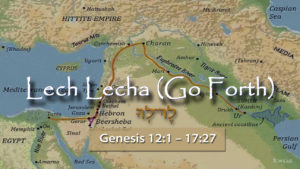 The question of “clean and unclean” is one of the most obscure Biblical concepts to Christians (a better choice of words would be “pure and defiled”). The commandments dealing with this subject appear to deal with a range of unrelated issues that the church chooses to ignore. Hopefully, we will be able to shed some light on importance of these concepts.
The question of “clean and unclean” is one of the most obscure Biblical concepts to Christians (a better choice of words would be “pure and defiled”). The commandments dealing with this subject appear to deal with a range of unrelated issues that the church chooses to ignore. Hopefully, we will be able to shed some light on importance of these concepts.
The main issue concerning “clean and unclean” is stated in Leviticus 15:31.
Thus you shall keep the sons of Israel separated from their uncleanness, lest they die in their uncleanness by their defiling My tabernacle that is among them (Leviticus 15:31).
So ritual cleanness or uncleanness has to do with the individual approaching God in His sanctuary. The individual had to be ritually “clean” (i.e., pure) to approach due to the implication for the sanctuary. In the next section we will see that part of the cleansing accomplished on Yom Kippur is that of the sanctuary itself due to the fact that it was exposed to the human community. The issue of “clean and unclean” primarily impacted the priesthood.
What are some of the things that would render a person “unclean”? One could become “unclean” by eating certain foods, by engaging in various activities or by coming in contact with a corpse. Most of the activities or conditions rendering a person “unclean” entail coming into contact with a dead person. Any discharge from the body except the elimination of bodily waste would render a person “unclean”. Finally, God distinguished between foods that were considered “clean” and those “unclean”. In our culture, the food prohibitions can be the most difficult to understand.
God is the living God. Jeremiah declared,
But the Lord is the true God; He is the living God and the everlasting King (Jeremiah 10:10a).
God will not allow anything associated with the concept of “death” to be associated with Him. In addition, any Israeli that was making a “karbon” (approach) was a type of God Himself. Ultimately, God would bring the ultimate karbon (His unique son, Jesus) to the altar. So, God demanded that any person making an offering to distinguish between “clean and unclean” and, therefore, be ritually “clean”. If a person became “unclean” for any reason, there was a ritual to render him, after a specified period of time, “clean” again.
In the gospels, Jesus began to distinguish between ritual defilement (“clean and unclean”) and spiritual defilement. From the perspective of the Kingdom of God, Jesus emphasized that spiritual defilement was more important than ritual defilement.
It is not what enters into the mouth that defiles the man, but what proceeds out of the mouth, this defiles the man (Matthew 15:11).
Jesus did not totally dismiss the issue of ritual defilement, but later, it appears that Paul did so, especially as it deals with food. Paul declared,
I know and am convinced in the Lord Jesus that nothing is unclean in itself, but to him who thinks anything to be unclean, to him it is unclean (Romans 14:14).
and,
men who forbid marriage and advocate abstaining from foods which God has created to be gratefully shared in by those who believe and know the truth. For everything created by God is good, and nothing is to be rejected if it is received with gratitude; for it is sanctified by means of the word of God and prayer (1 Timothy 4:3-5).
I don’t know if Paul meant to include ham sandwiches or not, but it appears as if he did. Still, Paul complied with the issue of ritual “cleanness” when offerings were made for him as he made an approach to the sanctuary in Jerusalem (Acts 21:17-26). He had been a believer for many years when this event occurred.
How do we answer the question of the difference between Leviticus and the New Testament? My only answer is that New Testament believers never become a type of God concerning the issue of karbon (offerings). That is a completed work; nothing can be added by us. Also, the issue of “clean and unclean” has to do with those “approaching” God. The believer in the Messianic Age lives in the Holy Place with Messiah Jesus and is not going out and coming in. Paul wrote,
…and raised us up with Him, and seated us with Him in the heavenly places in Christ Jesus (Ephesians 2:6).
and,
Therefore if you have been raised up with Christ, keep seeking the things above, where Christ is, seated at the right hand of God. Set your mind on the things above, not on the things that are on earth. For you have died and your life is hidden with Christ in God (Colossians 3:1-3).
Every believer must weigh these issues in his/her own faith walk. Everything should be established by faith by the individual. After all, Paul also wrote,
…whatever is not from faith is sin (Romans 14:23b).

 In
In 